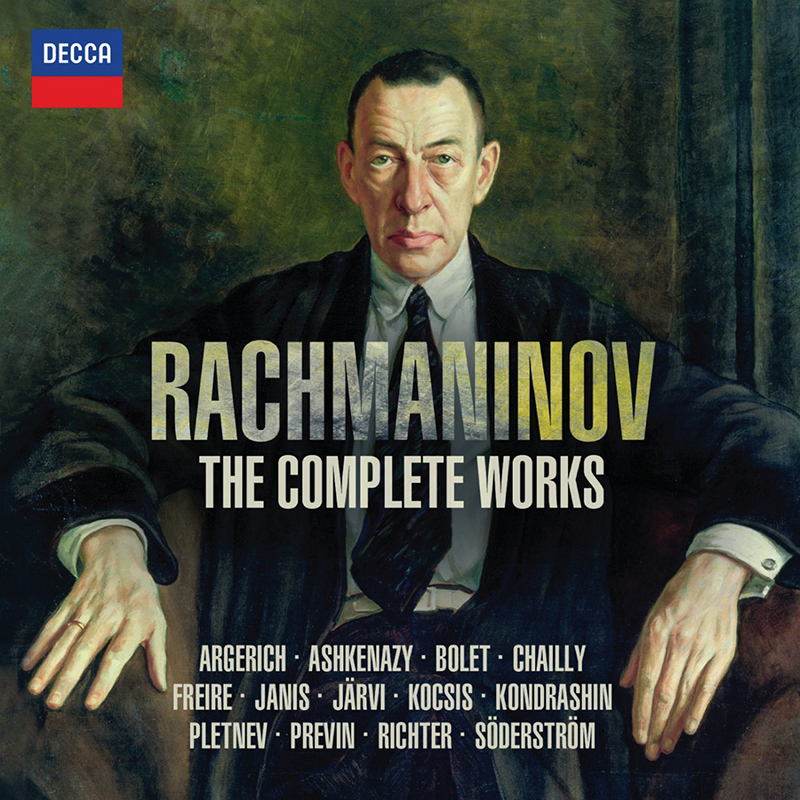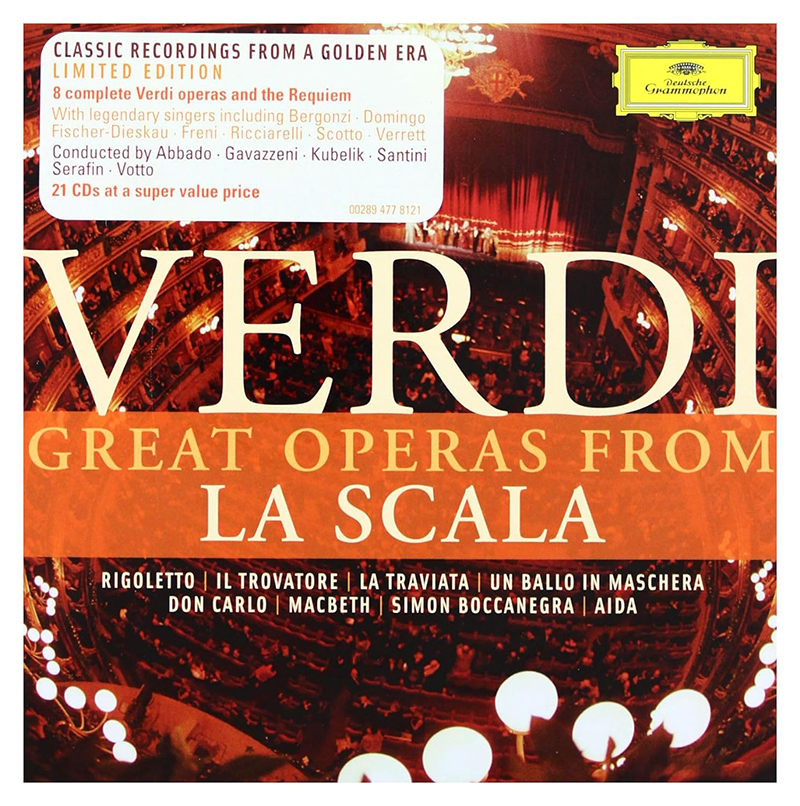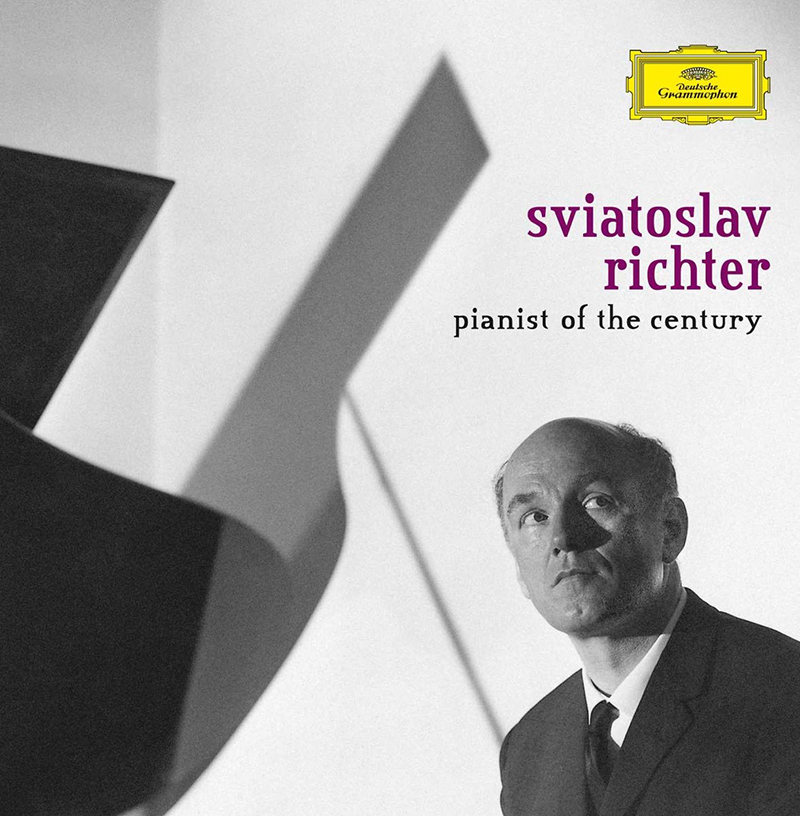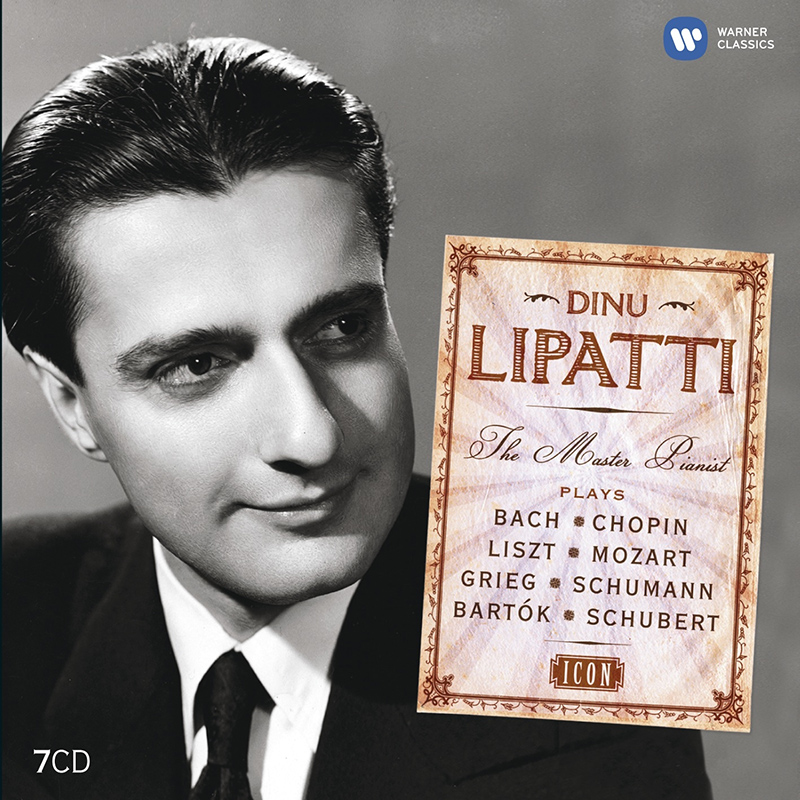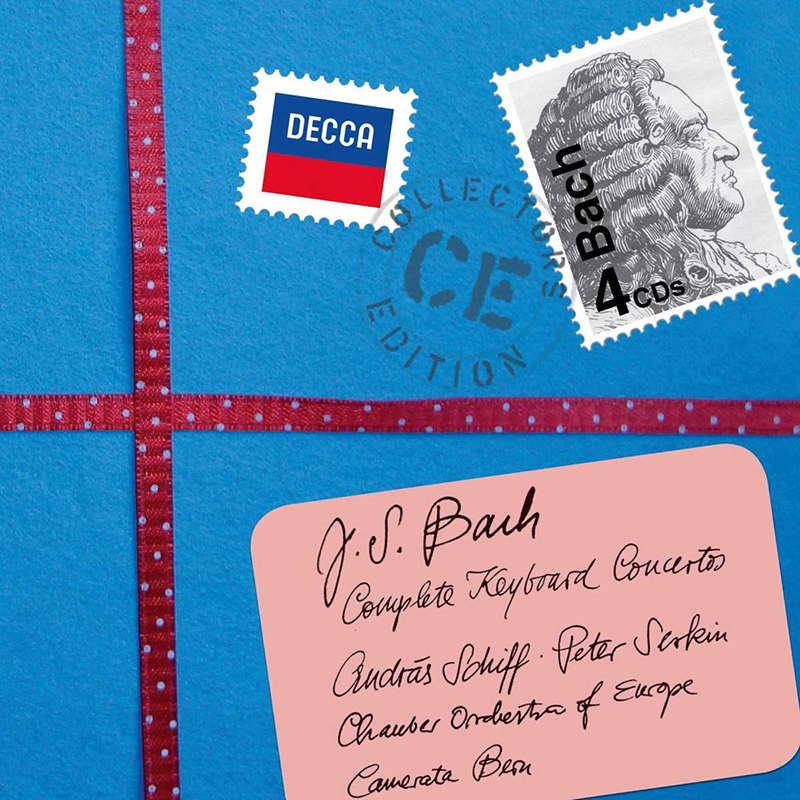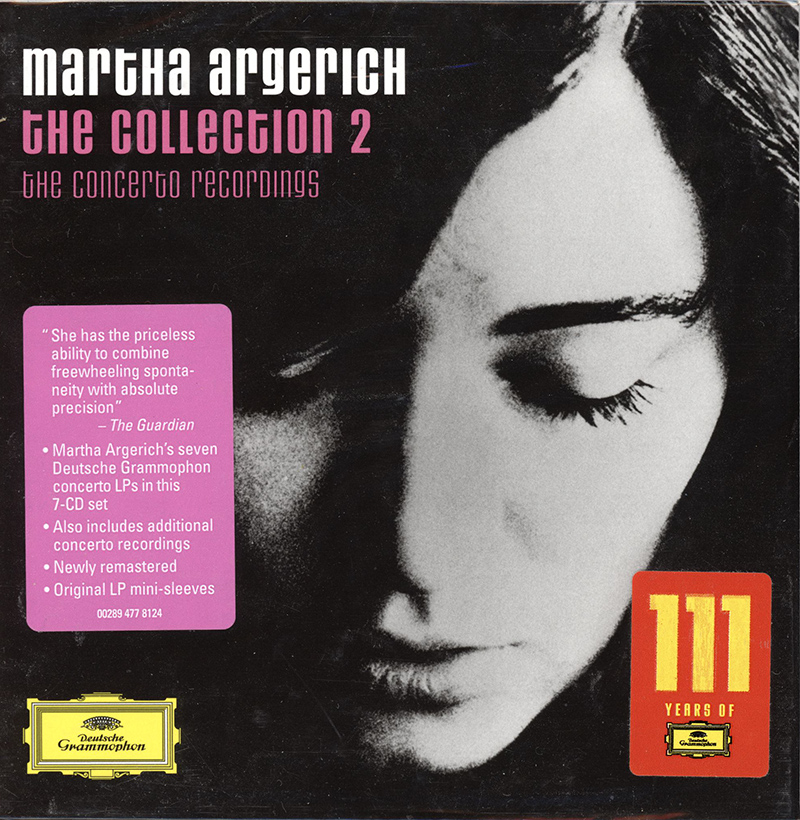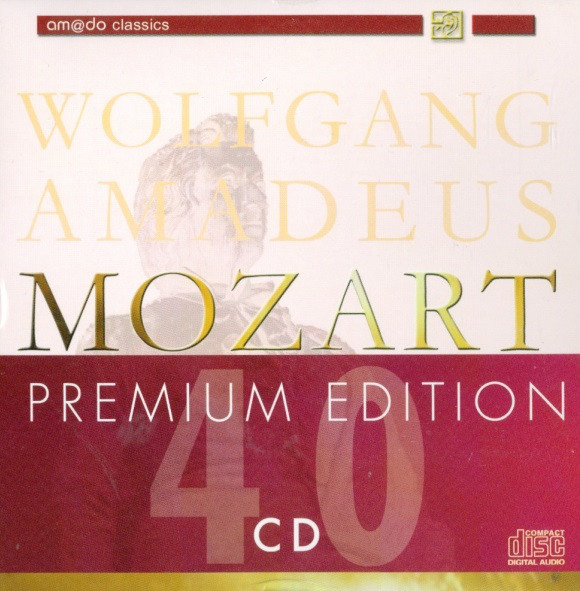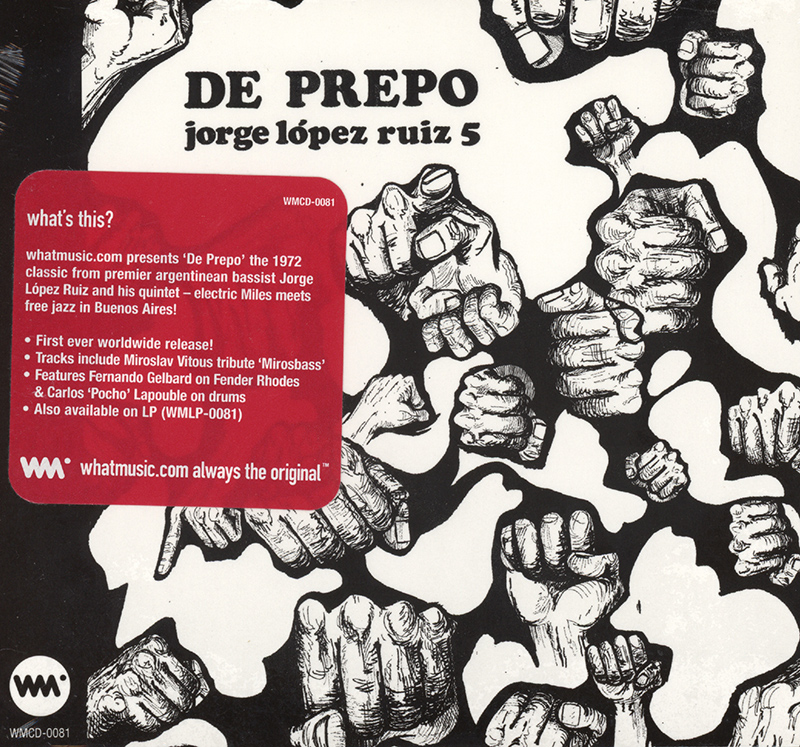Logowanie
KOLEKCJE!
BACH, CHOPIN, LISZT, MOZART, GRIEG, Dinu Lipatti, Otto Ackermann, Ernest Ansermet
The Master Pianist
PROKOFIEV, CHOPIN, TCHAIKOVSKY, SCHUMANN, BEETHOVEN, Martha Argerich, Claudio Abbado, Giuseppe Sinopoli
The Concerto Recordings
The Collection 2
Jakość LABORATORYJNA!
ORFF, Gundula Janowitz, Gerhard Stolze, Dietrich-Fischer Dieskau, Deutsche Oper Berlin, Eugen Jochum
Carmina Burana
ESOTERIC - NUMER JEDEN W ŚWIECIE AUDIOFILII I MELOMANÓW - SACD HYBR
Winylowy niezbędnik
ClearAudio
Essence MC
kumulacja zoptymalizowana: najlepsze z najważniejszych i najważniejsze z najlepszych cech przetworników Clearaudio
Direct-To-Disc
PIAZZOLLA, ChamberJam Europe
Tangos del Ángel y del Diablo
Direct-to-Disc ( D2D ) - Numbered Limited Edition
Jorge Lopez Ruiz 5
De Prepo
- 01 HOMENAJE A LA MUERTE 6:13 >>> Posłuchaj fragmentu <<<
- 02 MIROSBASS 4:34 >>> Posłuchaj fragmentu <<<
- 03 PUNTOS DE PARTIDA 7:19 >>> Posłuchaj fragmentu <<<
- 04 TODO FLUYE 6:34 >>> Posłuchaj fragmentu <<<
- 05 ODA PARA MI NINA 3:48 >>> Posłuchaj fragmentu <<<
- 06 MAS DE PREPO QUE NUNCA 6:16 >>> Posłuchaj fragmentu <<<
- Jorge Lopez Ruiz 5 - group
"De Prepo" the 1972 classic from premier argentinean bassist Jorge López Ruiz and his quintet electric Miles meets free jazz in Buenos Aires! --------------- De Prepo (Forcing your hand) In May 1972, Jorge López Ruiz, Fernando Gelbard and ‘Pocho’ Lapouble had been part of an ensemble gathered around a project of Lapouble’s and released under the name of ‘Ego’ by Jazz Band de Free (WMLP/CD-0080). The music in that record may be described as a ‘fusion’ of Ornette Coleman’s and Miles Davis’ electric propositions on what ‘free’ jazz might be, as seen from Buenos Aires by musicians deeply rooted in bop and hard bop. Four recording sessions in October 1972 brought the three musicians together again on a project of López Ruiz’s and based on a more meditative but full-of-energy approach, stemming from Davis and his alumni, Weather Report. One of the tunes in ‘De Prepo’ is titled ‘Mirosbass’, an homage to Miroslav Vitous, bassist with the first Weather Report. A pun on his name, ‘Mirosbass’ is ethereal, but not wholly so; the Jorge López Ruiz 5 have almost no rock flavour, the bop roots of all concerned show clearly, and they have found their own very melodic way of dealing with freedom. So here we are confronted with a musical daydream, sweet and energetically propulsive in equal measure, if I may say so. Let me be contradictory perhaps, but the music in this album strikes me very much in the aforementioned way. Allow yourself to be rocked into a daydream-like haze and be open to the music as it is: highly enjoyable. Times were pretty hard in Argentina by 1972, and would get dangerously tougher still; the jazz musicians involved in this record reflected this, wanting the music to sound risky and pushy. Yet thirty years later the music is perceived as quite soothing. This view changes nothing as to the quality of their effort named ‘De Prepo’ (‘Forcing Your Hand’), it only shows they found original ways to overcome hardships, fears and frustrations; for as John Keats very charmingly said: ‘A thing of beauty is a joy forever’. Escapism? No, definitely not. Rather art in a very effective way. Take a look at three of the titles: ‘Homenaje a la Muerte’ (‘Homage to Death’), ‘Puntos de Partida’ (‘Points of Departure’) and ‘Todo Fluye’ (‘Everything Flows’). Don’t they show real philosophical, albeit metaphysical, preoccupations associated with the music? Then ‘Homenaje a la Muerte’ (‘Homage To Death’) is followed by the very much alive ‘Mirosbass’, as ‘Todo Fluye’ (‘Everything Flows’) precedes the tender ‘Oda Para Mi Nińa’ (‘Ode For My Little Girl’); the final title is ‘Más De Prepo Que Nunca’ (‘Forcing Your Hand More Than Ever’), a way of saying ‘we’re more alive than ever before and this is our way of forcing your hand, actually not even forcing your ear: our music speaks for itself’. Don’t forget they are in Argentina, it is late 1972 and circumstances in Argentina are forcing them to become aggressively pushy. But they just want you to listen to a thing of beauty that is a joy forever. ‘Homenaje…’ sounds possibly too restrained today, retrospectively juxtaposed against the terrible wave of violence Argentina was to live through until the fall of the military dictatorship in 1983, but in its own quiet way it expresses the deep respect and concern the group had for life. A feeling that would become inexorably mired in personal insecurity and deep trouble under the rule of men who never spoke literally, but acted out: ‘Long live death!’ They knew very well they belonged to the cream of jazzmen in their country and time has confirmed their view. Only then, the local scene was extremely conservative, with a majority of musicians, critics and media people dead against avant-garde jazz. Traditional and mainstream jazz seemed to be what most attracted the public; more modern jazz had only a moderate appeal. So the fact that some of the better-known modern jazzmen were ready for the challenge of free and avant-garde jazz, was almost intolerable to the rest of the musicians and the opinion makers. Then the listeners had their say and they responded positively to the challenging music this avant-garde minority was producing, much to the astonishment of everyone involved. This middle-class group of musicians, reacting in their own artistic way to the many challenges of the epoch, opened new ground for music development in Argentina. And their very gentleness in so doing might imply also that the anger and aggressiveness in much north american and european music of the late 1960s and early 1970s was apparently excessive. Who are they? Jorge López Ruiz, a highly respected arranger, composer and bassist (on this album also playing electric bass, cello and piano), had played with a legendary quintet led by Lalo Schifrin in 1956-1957; the featured saxophonist was Gato Barbieri. López Ruiz had also been Schifrin’s big band bassist along with Gato. López Ruiz always played with the best in argentinean jazz. For this particular project he was surrounded by musicians of the same level: Hugo Pierre, here on soprano and clarinet, but a superb alto and tenor saxophonist too. Somewhat younger are Fernando Gelbard on Fender piano and flute, and drummer-percussionist Carlos ‘Pocho’ Lapouble. Gelbard was a pianist very much involved with the flute or perhaps vice versa; and also a pioneer in electronics applied to jazz, for electronic instruments were new to the jazz scene in the early 1970s and a rarity in Argentina. He had also played with Gato Barbieri and another great tenor from Argentina, Chivo Borraro. Long before that, as a teenager pianist at the time of Schifrin’s quintet of 1956, Gelbard had played once for Lalo who gave him some advice: ‘Kid, you sound too much like Brubeck, you should listen to Horace Silver’. Which he did – witness two other whatmusic.com reissues: ‘Didi’ (WMLP/CD-0020) and ‘El Nuevo Sonido Del Chivo Borraro’ (WMLP/CD-0027). Lapouble has always been someone as full of talent as of ebullience, so it didn't take long for him to be counted among the best argentinean jazzists. A bit younger, percussionist Miguel ‘Chino’ Rossi does a very creative job here. ‘De Prepo’ is an extremely convincing testimony of high musicality, purpose and dynamism. Be a witness to a musical experience that points to the then-unknown, based on a sound knowledge of jazz roots. It is perhaps due to Buenos Aires’ special jazz scene: not many great jazz names from the States or Europe used to visit, musicians had to rely on records, travel, hearsay and personal enthusiasm. Enthusiasm is probably what it boils down to. And the joy of creating beauty under duress: the tragic circumstances of Argentina’s history transmuted into musical creativeness. Norberto Gimelfarb, Yverdon (Switzerland), December 2002
